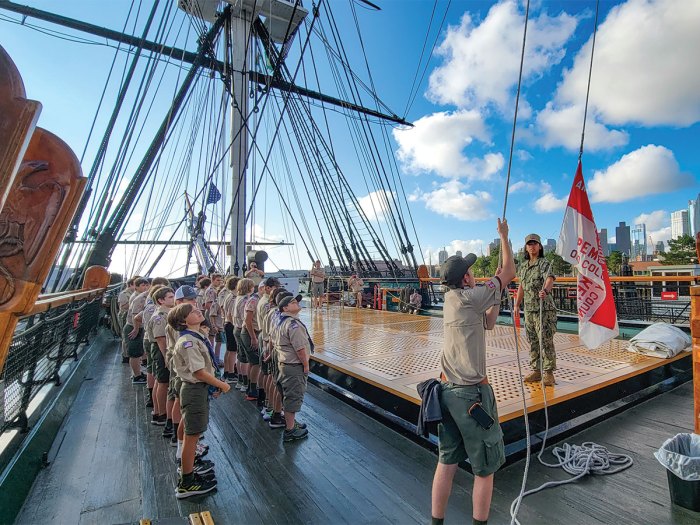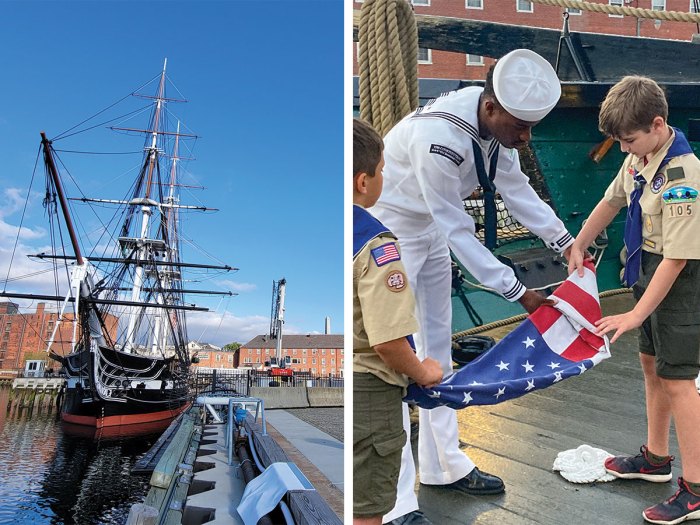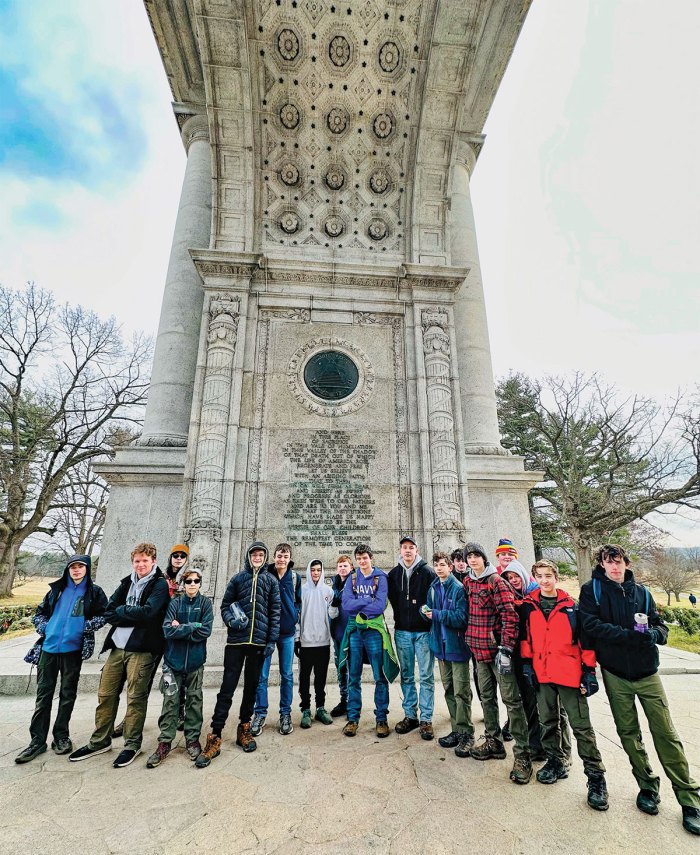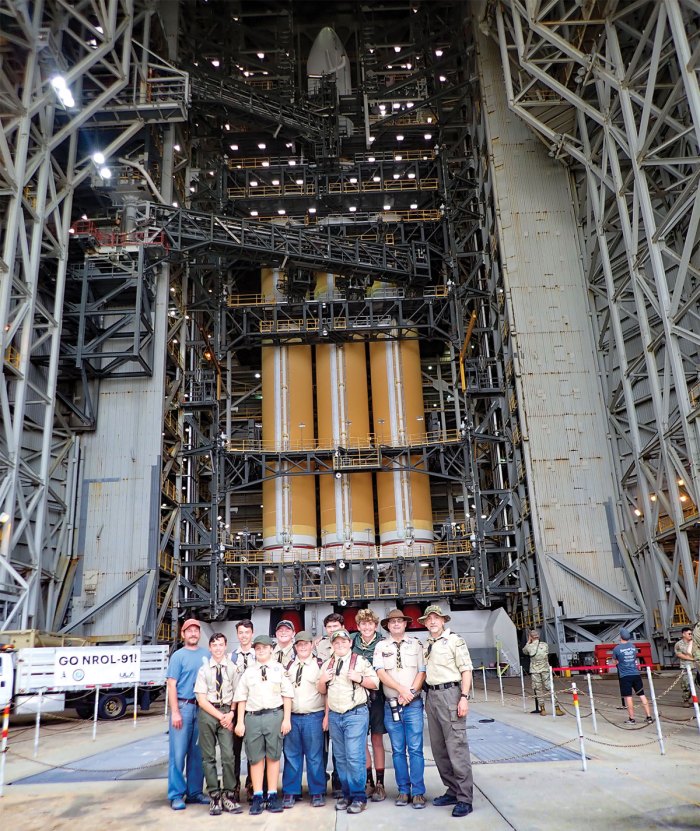Scouts Check Out Military Sites Across the U.S.

Adam Cushing with Troop 105 raises the troop flag aboard the USS Constitution.
Nestled in his sleeping bag, CJ Agnew tried to doze off, but he couldn’t. He was lying on history.
“I remember looking up at the stars and the masts, and realizing I’m sleeping on the deck of the USS Constitution,” the 16-year-old Life Scout says. “It’s a once-in-a-lifetime opportunity. Imagine all the feet that walked across that deck.”
CJ and Troop 105 of Pembroke, Massachusetts, toured and slept aboard the nearly 230-year-old ship, which served in multiple conflicts, including the War of 1812. The outing helped the Scouts understand what life was like for a sailor back then.

Max Hanna and Ben Meehan fold the American flag with the help of U.S. Navy Airman Dehjon Okafor.
STEP BACK IN TIME
There are hundreds of military museums, memorials and historical sites across the U.S. Last August, Troop 105 wanted to check out one of them: the USS Constitution, stationed in Charlestown, Mass. It hosts tours during which Scouts can sleep on the top deck under the stars.
“It was built with iron sides; I think that was unique and led to many victories,” says Ben Meehan, 12, a Tenderfoot Scout.
The ship, nicknamed “Old Ironsides,” was in 33 battles and never lost. The educational tour also included practicing military drills from that era, like pretending to load one of the cannons.
“It took them 11 seconds to fully reload a cannon. Our closest was 22 seconds,” says Life Scout Adam Cushing, 16.

Troop 457 at Valley Forge National Historic Park in Pennsylvania.
Not every site lets groups stay overnight. Last January, Troop 457 of Rockville, Maryland, spent the night at another troop’s cabin and then traveled to Valley Forge National Historic Park in Pennsylvania for the day. Valley Forge was where the Continental Army, led by Gen. George Washington, recovered for six months during the Revolutionary War.
“With 12,000 soldiers, it was technically the fourth largest city in the colonies at the time,” says Star Scout Max Gruen, 16.
On that chilly day, the troop hiked 7 miles around the park, exploring some reconstructed cabins and Washington’s headquarters.
“It was big enough to house a couple people,” says Eli Giron, 12, a Tenderfoot Scout. “They didn’t change anything; they preserved it.”
The Scouts read plaques, studying what happened at the 3,500-acre encampment from 1777 to 1778. One interesting fact was Washington’s order to have soldiers inoculated against smallpox, a disease that accounted for many of the army’s deaths during the war.
“I love history,” says Austin Gallagher, 14, a First Class Scout. “We learned a lot.”

Scouts with Troop 489 stand by a Delta IV Heavy rocket at Vandenberg Space Force Base in California.
TODAY’S FORCES
There are hundreds of military bases across the U.S., including those for the Space Force. This new branch protects our country by launching and operating satellites to gather intelligence and track threats in space. One site where rockets are launched is Vandenberg Space Force Base in Santa Barbara County, California.
Troop 489 of Arroyo Grande, Calif., got permission to go on base to see a 232-foot-tall Delta IV Heavy rocket and tour an Atlas V booster.
“Both of those take off from Vandenberg,” says Tenderfoot Scout Benjamin Errico, 12. “They’ll put satellites up for weather and other important missions.”
After the tour, the troop stopped by nearby Honda Point, where seven U.S. warships accidentally ran aground in 1923, resulting in 23 deaths. The somber visit reminded the Scouts of the price the military pays for them to live free.
As Benjamin says, “It was a time to be respectful and reverent for the people that died for our country.”
The Military Branches
The U.S. armed forces are made up of six branches, each with unique duties:
- Air Force (established 1947)
- Army (est. 1775)
- Coast Guard (est. 1790)
- Marine Corps (est. 1775)
- Navy (est. 1775)
- Space Force (est. 2019)
My troop had the greatest time at the three ships in the Baltimore harbor: the Torsk, the Constellation and the Taney. All three are different and we tried a different one each year. Definitely recommended.